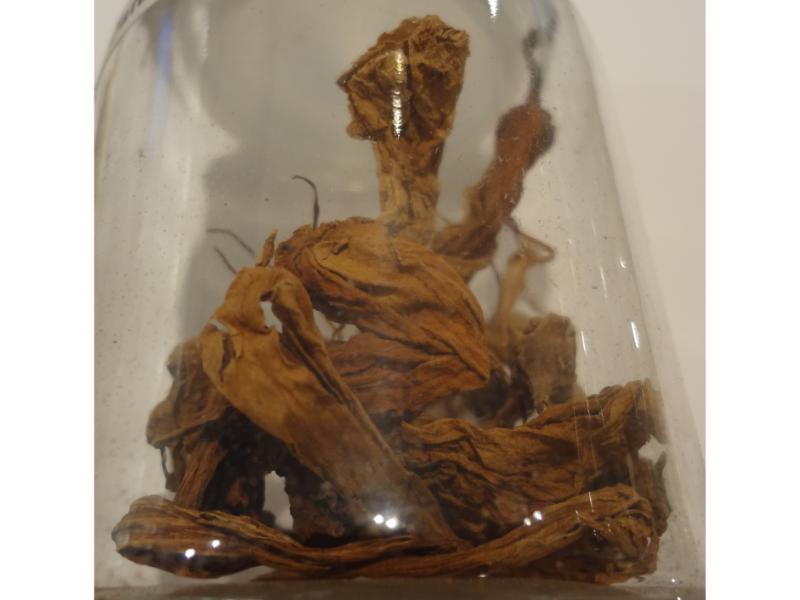Search in medicinals
Daturae Flos
Datura flower
洋金花 〔洋金花〕 yáng jīn huā

Alternate English names: thorn apple flower
Alternate Chinese names: 曼陀罗花 màn tuó luó huā; 万桃花 wàn táo huā
Kingdom: Plant
Origin in PRC Pharmacopoeia: Datura metel L. (PRC Pharmacopoeia)
Origin in unofficial sources: Datura metel L.*; Datura innoxia Mill.; Datura stramonium L.; Datura tatula L.; Datura inermis Jacq.; Datura fastuosa L.
Use: Medicinal
Category: Phlegm-transforming cough-relieving panting-calming agents / Cough-relieving panting-calming agents
Properties: Acrid; warm; toxic.
Channel entry: Lung, heart, and spleen channels. (some sources list lung and liver channels.)
Actions and indications:
- Calms panting and relieves cough: Panting and cough without phlegm or with scant phlegm.
- Relieves pain: Pain in the heart region and abdomen; wind-damp impediment pain; injury from knocks and falls.
- Settles tetany: Spasms and convulsions in epilepsy or chronic child fright wind.
Dosage and method: Oral: 0.3 0.6g in decoctions; or use in pills and powders. Can also be smoked in cigarette form (1.5g maximum daily).
Warnings: Yáng jīn huā is toxic and its dose must be carefully controlled to prevent poisoning. It is contraindicated in patients with glaucoma or increased ocular pressure. It is also contraindicated in unresolved exterior patterns and conditions of copious thick sticky phlegm. It must be used with care in cases of hypertension, heart disease, constitutional weakness, and in pregnancy. All parts of the datura plant may induce a delirious mental state that is notoriously disorienting, amnesic, and marked by pronounced hallucinations. The responsible alkaloids vary widely in concentration and are most potent in the seeds of the plant. Datura preparations are sometimes deliberately ingested for their psychoactive effects, but the experience is widely regarded as uncomfortable and the margin between safe and toxic doses is relatively narrow. Poisoning primarily results from the plant’s potent anticholinergic effects.
Production area: Jiāngsū, Fújiàn, Guǎngdōng.
Back to search result Previous Next